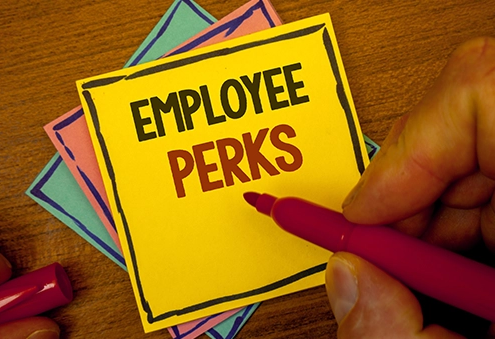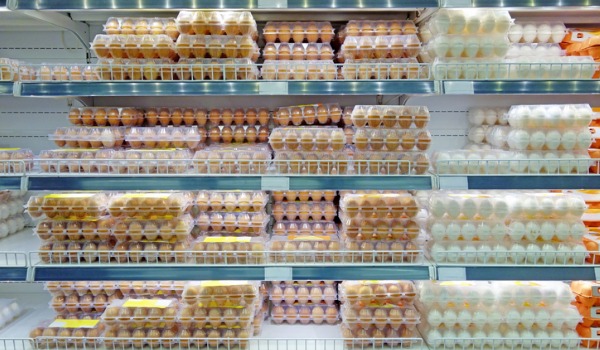Cost of living crisis may fundamentally change the employer-employee relationship
Cost of living crisis may fundamentally change the employer-employee relationship
UK inflation is now in double figures, hitting 10.1% in July, and the Bank of England is warning of 13% by the end of the year.
Millions of people are facing a tough autumn and winter. It seems now the cost of pretty much everything is rising – filling up your car, buying groceries. And the projected cost of powering and heating our homes reaches ever more eye-watering levels.
People are struggling now and are likely to find their incomes squeezed even more over the coming months. However, for some people, extra help is coming from what perhaps they might see as an unexpected source – their employer.
For generations of people their relationship with their employer was quite simple. They would come into work each day for a set number of hours and would be paid accordingly for that time. For some there might be bonuses.
The corporate mantra ‘our people are our greatest asset’ may have been trotted out every now and again but such declarations were often met with an eye-roll from overworked workers. As far as they were concerned the relationship was purely transactional.
When employers showed people they were their greatest asset
In the years leading up to the COVID-19 pandemic there were signs of a cultural shift. More enlightened employers started to talk about ‘wellbeing’. No doubt this was partly inspired by multiple studies showing mental health issues were costing UK plc billions each year in lost productivity.
Environmental Social and Governance (ESG) came to the fore. This asked what companies were doing to cut carbon emissions, address diversity and, crucially, focus on the wellbeing of their teams. Investors are now increasingly looking at what ESG framework a business has in place before they part with their money.
This new culture of enlightenment accelerated during the pandemic. Firms, large and small, simply had to demonstrate they had procedures in place to minimise the risks to their staff. If they wanted to keep operating, they had no choice but to put protections in place.
And it could be argued the cost of living crisis is one of the first big tests for ESG. Directors and HR departments are looking at their staff and they are seeing people struggling to make ends meet. A growing number of businesses are realising they can’t just say ‘well, that has nothing to do with me’.
Wage stagnation is prompting employers to respond in new ways
We are seeing a rise in industrial disputes with unions pushing for significant pay rises and some companies, at least initially, resisting. However, there is a number of employers who are stepping up to the plate. Car maker, Rolls Royce, is giving employees an extra £2,000 in cash. Banking giants, Barclays and Lloyds, are doing similar.
But this cultural shift is about much more than cold hard cash handouts, as welcome as they are. The most forward-thinking employers are taking a more holistic approach to fostering a workplace culture that makes people feel valued through the good and bad times. Creating relationships that go beyond the transactional.
Love2shop is now working with employers and their HR teams across multiple sectors. It is helping them to generate a positive culture by making people feel valued, recognised and rewarded.
“Love2shop vouchers are truly valued by our employees for the sheer variety they offer.”
One such business is Evri. A home delivery specialist, Evri has prospered thanks to the boom in e-commerce. It delivers packages to people’s homes, workplaces, as well as to ParcelShops and Lockers, seven days a week. It delivers more than 600m parcels a year on behalf of retailers including Next, ASOS and John Lewis.
Thanks to Evri’s rapid growth it now employs 6,500 people across the UK. It wanted to establish a rewards programme and approached Love2shop for help.
Working together they established the company’s ‘My Rewards’ programme using a combination of both Love2shop Digital Reward Codes and paper Love2shop Gift Vouchers.
Alongside the Love2shop Digital Reward Codes and paper Love2shop Gift Vouchers, there is a suite of products including Love2shop Contactless. Love2shop is also accepted by more than 150 leading UK consumer brands including Wilko, Iceland, Matalan and Argos, and Marks & Spencer (through exchange). People can use them to pay for everyday essentials and for little luxuries.
Evri’s My Rewards platform allowed colleagues to award one another Reward Points for their achievements at work to eventually be exchanged for prizes. It also frequently offered ad-hoc recognition, or ran on-site competitions, across their sites.
Rewards needed to be kept simple to redeem because many Evri employees speak English as a second language. This can present a challenge if a redemption process is complex or involves lots of text instructions.
Love2shop’s digital platform allows businesses to easily scale up
With such a diverse workforce, it was important that a broad variety of rewards was available through the scheme. And, because of its ongoing growth, Evri required a reward which could easily scale to service an ever-expanding workforce.
Evri’s Internal Reward Team, implementing the My Reward platform, also needed fast order turnaround to manage the demand from employees during busy staffing periods.
Reward Codes easily integrate with Evri’s My Rewards system while keeping simplicity a priority. Delivered by email, and redeemed without registration, they were the perfect fit for Evri’s platform and their staff’s needs.
Paper Love2shop Gift Vouchers make for excellent on-the-spot and ad-hoc rewards. They’re ideal for audiences with limited or differing computer skills or access to the Internet.
Sarah Woolley, a Reward Specialist at Evri, said: “Love2shop provides a quick, easy and reliable service and their Love2shop vouchers are truly valued by our employees for the sheer variety they offer. There really is something for everyone.
“The end-to-end process from ordering reward codes or vouchers and awarding these to employees is easy to navigate and quick, which works really well for us as we are such a fast-moving business. I would definitely recommend Love2shop to anyone looking for a flexible and comprehensive reward solution.”
Shift in workplace culture could ease burden of cost of living for employees
Many people across the UK will struggle to pay their bills in the coming months. It is a tough time for sure but what hopefully will emerge from this challenging time is a genuine shift in workplace culture.
Smart businesses are now recognising that the traditional relationship between employer and employee is changing. People want to be paid well but they also want to feel like they are part of an organisation that values them as people as well as the skills they bring to the job.
Companies that fully embrace this new way of doing business will create happier and more highly-motivated workforces as well as profitable and successful businesses.
You can read the Evri case study here.






 Eggs and flour are regular features on the supermarket shelves again, along with your favourite craft beer and wines. You can even pop out for a pint and see your friends in the park. But the country’s staff aren’t gagging to give up remote working.
Eggs and flour are regular features on the supermarket shelves again, along with your favourite craft beer and wines. You can even pop out for a pint and see your friends in the park. But the country’s staff aren’t gagging to give up remote working. Every week, Group and Human Resources put together a round-up of news and views from around the business and push it out to staff. That might include blogs written by people in our company, surveys to get opinions and feedback from staff about their work and their response to Group efforts, news on how the business is responding to COVID-19 developments, and any human resources developments that might affect staff.
Every week, Group and Human Resources put together a round-up of news and views from around the business and push it out to staff. That might include blogs written by people in our company, surveys to get opinions and feedback from staff about their work and their response to Group efforts, news on how the business is responding to COVID-19 developments, and any human resources developments that might affect staff. Our daily catch-ups give us a chance to see some friendly, familiar faces, talk about what we’re doing inside and outside of work, gripe about some things, gloat about others. It’s also crucial for making sure everyone is on the same page with their tasks.
Our daily catch-ups give us a chance to see some friendly, familiar faces, talk about what we’re doing inside and outside of work, gripe about some things, gloat about others. It’s also crucial for making sure everyone is on the same page with their tasks. You might be thinking “everyone hates meetings though”. Which might be a fair point, but in our experience everyone’s still on time for them, which wasn’t always the case when they were face to face. And they still contribute.
You might be thinking “everyone hates meetings though”. Which might be a fair point, but in our experience everyone’s still on time for them, which wasn’t always the case when they were face to face. And they still contribute.